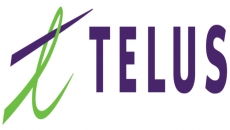The latest advancements in identifying killer whales with the help of artificial intelligence are being put to use to help reunite an orphaned B.C. orca with its pod, but first it needs to leave the lagoon where its mother died.
The B.C.-based whale research group Bay Cetology is offering access to its online AI-assisted photo database to local photographers and tour operators as part of efforts to track the whale's relatives, giving the calf a chance to connect with its pod.
Executive director Jared Towers said the technology scans photos of killer whales submitted by those on the water and can quickly identify individual animals based on their dorsal fins and other markings.
He said scientists have been able to identify specific animals based on their fins for more than 50 years, and using AI is the next advancement.
"Really, this is just an extension of that research methodology. It started with film, and then it went digital, and now we're transitioning into deep learning, machine learning, or an artificial intelligence kind of model to conduct this work moving forward."
The young killer whale has been has been stranded in the lagoon since its pregnant mother died after being caught when the tide went out more than a week ago.
Whale experts, First Nations members and experts with the Fisheries Department haven't been able to lure the calf into the open ocean where it might reconnect with its family pod.
The Fisheries Department said in a statement Monday that the tides in the remote location near Zeballos, on northwestern Vancouver Island, continue to be too low for efforts to encourage the whale to go over a sandbar and into the open ocean.
Towers said the AI program, known as Finwave, is currently in its beta-testing stage, but has a more than 90 per cent accuracy rate when looking for Bigg's killer whales such as the orphaned calf.
The platform, which started in 2021, has about 200 users in its testing phase and the goal is to turn it into an open-source data system by this summer.
Towers said offering access to local tour operators, naturalists, and photographers currently working off the west coast of Vancouver Island will allow scientists to be better placed to help when it's time to connect the young whale with its family.
He said that it's possible the animal will make it out of the lagoon into the open ocean on its own, at which point it will be up to the whale to call out to find its pod.
If that doesn't happen, Towers said rescuers could decide to lift the animal out of the lagoon and place it in the open ocean, which makes knowing where its pod is more important.
"I think that what would probably end up happening is that little whale gets put into a net pen, and then is released when its family is in the area," he said.
"So, that's why it's very important for us to know more about where that family is, and which way they're going, and when they're there, and try and get an indication of their routine."
He said photos taken Sunday morning and submitted to the platform show the calf's relatives were off Ucluelet, B.C., and heading north.
Ucluelet is about 150 kilometres south, down the coast of Vancouver Island, from Zeballos.
Rescuers have tried a range of methods to get the calf to move beyond the sandbar, including recorded whale calls, specialized directional guide lines, the pounding of Indigenous drum beats, and metal pipes in the water struck to create a "sound wall," but the young animal won't leave the inlet where its mother was stranded.
Rescuers had to pause their efforts over the weekend while they wait for the tide to rise.
The local Ehattesaht First Nation, which is helping in the rescue effort, has given the young calf a name: kwiisahi?is, meaning Brave Little Hunter.






